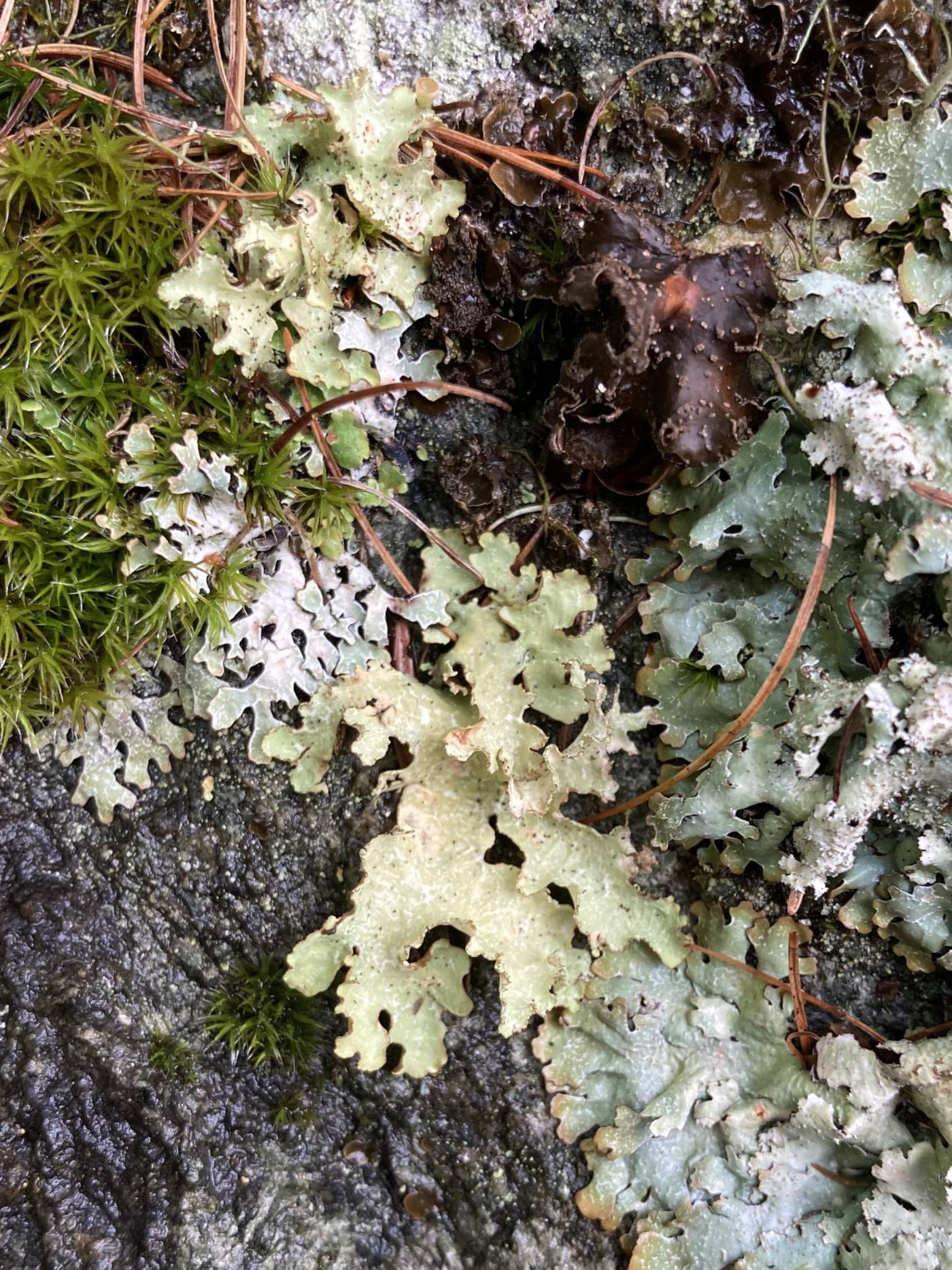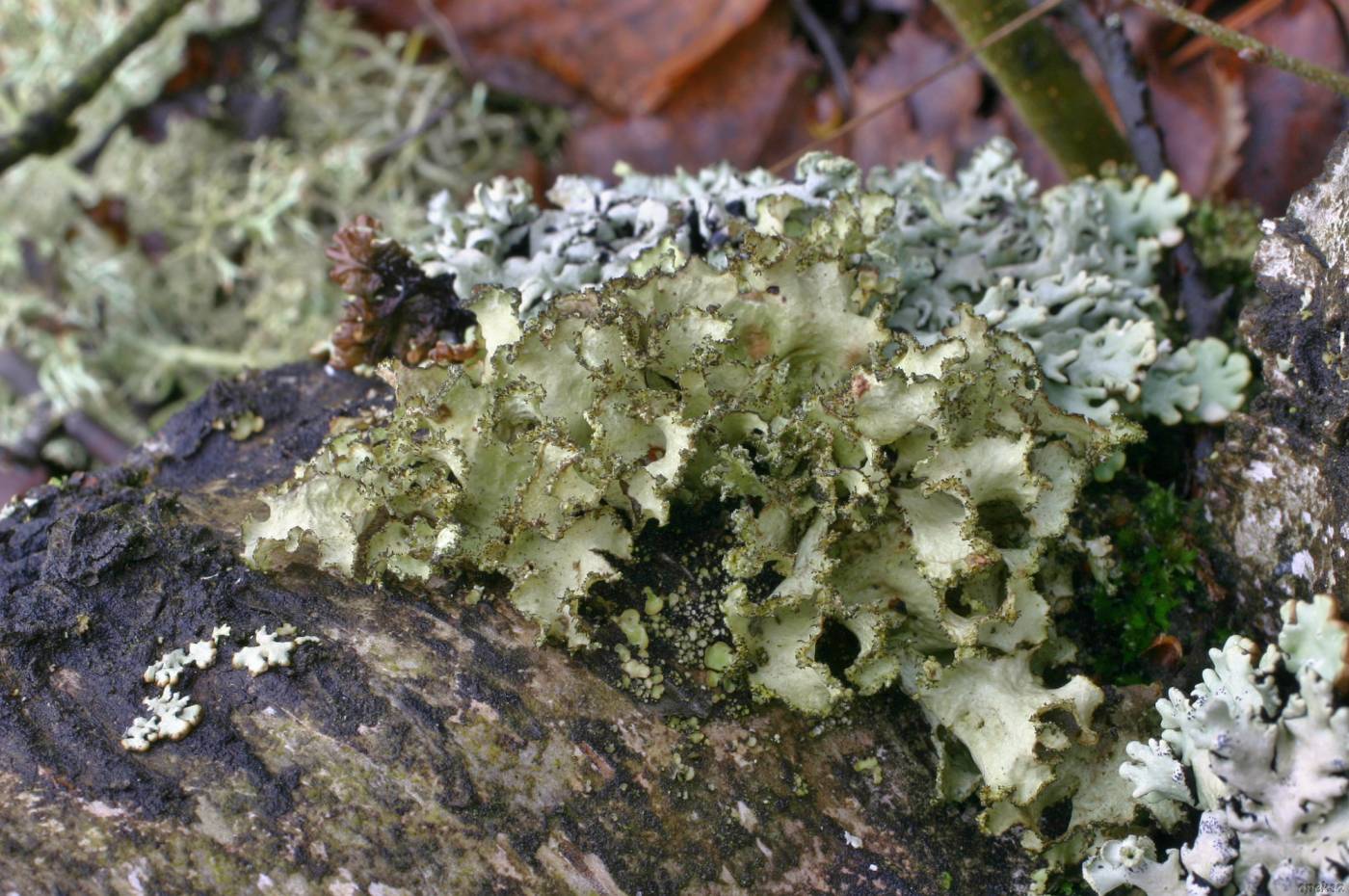A rare epiphytic, or less often epixylic, species characteristic by the yellowish to yellow-green upper side of lobes, marginal soralia and light underside with pseudocyphellae. It grows on acidic bark of coniferous and deciduous trees, especially in well-preserved mountain forests. Lately, the species has become known as a successful (re)colonizer and may be found also in managed landscape, most often in larch plantations and in blackthorn or hawthorn stands. The species was rare in the Czech Republic in the past, recorded only four times till the end of the last century, in the Domažlice and Rakovník regions and in the Železné hory Hills and Šumava Mts. Since 2009 the number of records is raising and currently, the lichen is known to occur in over 15 localities in southern and western Bohemia. However, these are mainly individual thalli. The species range is circumboreal, covering the broad temperate zone of Eurasia and North America plus isolated localities in north of the South America. In Europe, its natural occurrence is concentrated to the Alps and the Carpathians.
Literature: Steinová J., Bouda B., Halda J. P., Kukwa M., Malíček J., Müller A., Palice Z., Peksa O., Schiefelbein U., Svoboda D., Syrovátková L., Šoun J., Uhlík P. & Vondrák J. (2013): Lichens recorded during the 16th meeting of the bryological and lichenological section CBS in Slavkovský les mountains, April 2009. – Bryonora 51: 1–14. Šoun J., Bouda F., Kocourková J., Malíček J., Palice Z., Peksa O., Svoboda D. & Vondrák J. (2017): Zajímavé nálezy lišejníků z čeledi Parmeliaceae v České republice. – Bryonora 60: 46–64.
taxonomic classification:Ascomycota → Lecanoromycetes → Lecanorales → Parmeliaceae → Nephromopsis
most frequented synonyms:Cetraria laureriRed List (Liška & Palice 2010):CR – critically endangered
Red List (Malíček 2023):C3 – endangered
Occurrence in the Czech Republic
All records: 18, confirmed 18. One click on a selected square displays particular record(s), including their source(s).

